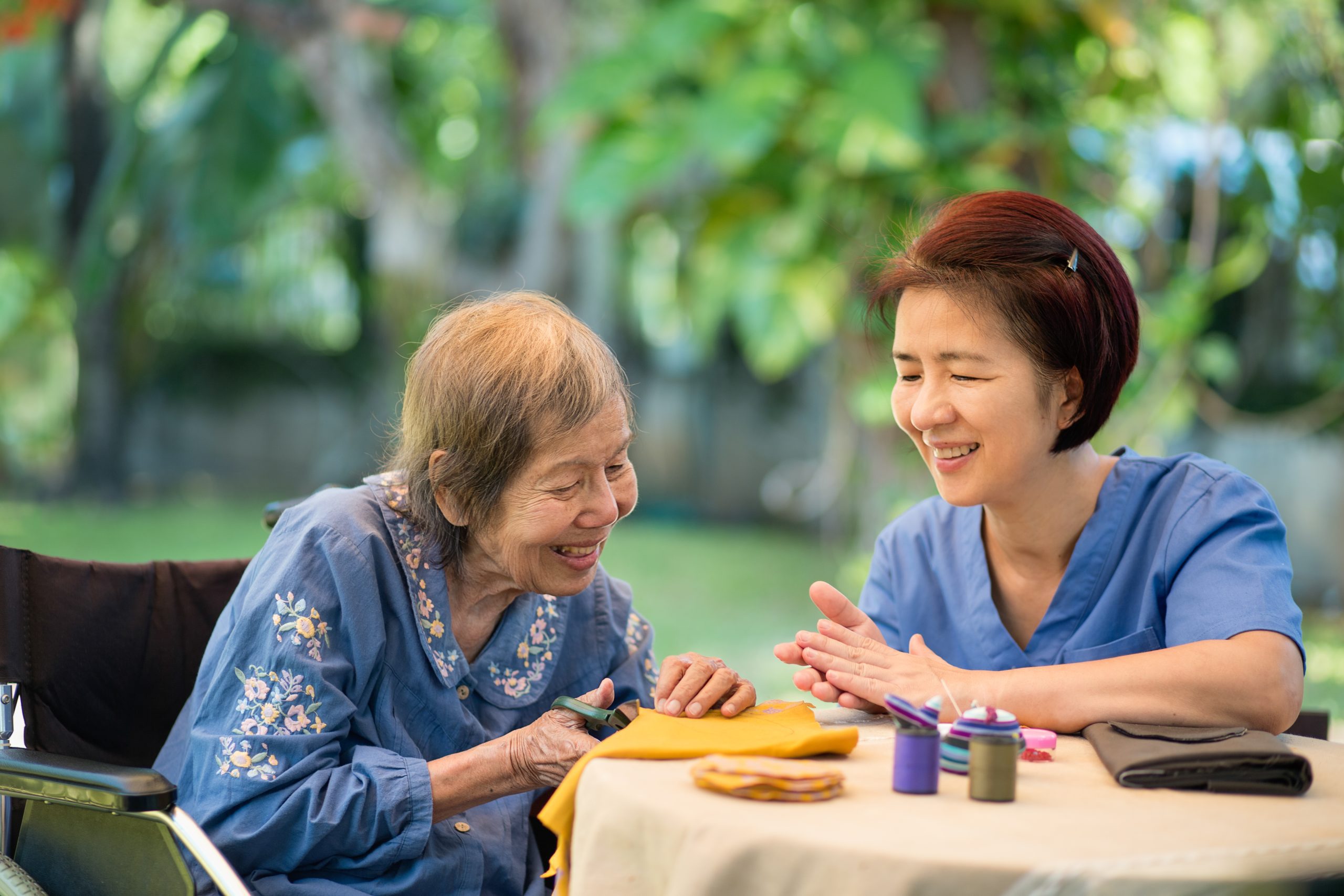Professional Training
An Overview of the Other Types of Dementia-Related Illnesses – A LIVE, INTERACTIVE Webinar Training
LIVE Interactive Webinar When people think of dementia, many times the first thing that comes to mind is Alzheimer’s disease. In this live interactive webinar, we are going to learn about the other types of dementia-related illnesses. In this general course, we will be looking at the ripple effect of dementia, we will dive deep […]
Micro-Level Cultural Consideration in Dementia Care: A Culturally Determined Phenomena and the Effects on Family Caregiving – A LIVE, INTERACTIVE Webinar
LIVE Interactive Webinar Available population data may underestimate the risk and prevalence of dementia among many cultures in the United States. Lack of assessment for need has influenced a lack of cultural support in dementia care. This LIVE interactive workshop aims to broaden participants’ understanding of how dementia is viewed by specific populations (Black Americans, […]
Macro Level Cultural Consideration in Dementia Care: A Population-Based Approach
Social and Cultural Competence Course LIVE Interactive Webinar In American society, our most vulnerable populations are at a greater risk for morbidity and mortality. This phenomenon is the same for dementia. This LIVE Interactive workshop aims to look at the following three modifiable health factors 1) social determinants of health 2) barriers to care and […]
Understanding Behaviors as Forms of Communication– A LIVE, INTERACTIVE Webinar Training
General Course LIVE Interactive Webinar This LIVE interactive Webinar workshop will aim to highlight the importance of understanding the impact dementia and related illness has on a person's ability to communicate. As a result, care partners and care professionals may need to shift their communication approach and gain insight into the variety of ways individuals […]
Supporting the LGBTQIA+ Community in Dementia Care – A LIVE, INTERACTIVE Webinar Training
Social and Cultural Competence Course LIVE Interactive Webinar In American society, LGBTQIA+ individuals have been marginalized and discriminated against, thus increasing the vulnerability and susceptibility of morbidity and mortality. In this LIVE interactive workshop, we will learn about the important intersection between dementia and the LGBTQIA community. In this general course, we aim to learn […]
Gaining a Deeper Understanding of Dementia and Substance Misuse to Eliminate Stigma – A LIVE, INTERACTIVE Webinar Training
Clinical Course LIVE Interactive Webinar In American society, often times individuals with substance use are highly stigmatized and this can have a major impact on health and wellness. In this live interactive workshop, we will be taking a deep look into the relationship between dementia and substance use. We will discuss Post-Traumatic Stress Disorder as […]
Emotional Memories, PTSD, Dementia: An Exploration of Brain Health and Trauma
Location: The Watermark at Brooklyn Heights, 21 Clark Street, Brooklyn, NY 11201 3 free CE credits available for Licensed Social Workers (excluding New Jersey) & Certified Case Managers. Veterans Day is a time to commemorate those who have served their country. Many who experienced combat have traumatic brain injury (TBI) and long-term psychological effects such […]
There’s More Than Alzheimer’s: Sharing the Spotlight with Lewy Body Dementia and Frontotemporal Degeneration
123 123, 123The Apsley (2330 Broadway, New York, NY 10024) 2 FREE CE Credits for licensed social workers (except NJ) and certified case managers Dinner and drinks provided. The first thought that comes to mind when we hear “dementia” is typically Alzheimer’s disease. Yet more than 1.5 million people in the United States have other types of […]
Sexual Health and Intimacy in Alzheimer’s Disease and Dementia: A Continued Commitment to Holistic Health
Watermark at Brooklyn Heights 21 Clark Street, Brooklyn, NY 2 FREE CE Credits For most, sexual health is an uncomfortable, or worse, unspoken topic among the general population. The reluctance to discuss this breeds shame and misinformation among individuals of all ages. However, this becomes increasingly true when discussing this with older adults and individuals […]
Frontotemporal Dementia (FTD) Webinar
*1 CE credit available to licensed social workers in select counties of New York and Illinois. See below. FTD is not a single type of dementia, but a family of dementias with various subtypes. Together, we will learn: • Symptoms and unique features of FTD, including various subtypes of FTD • Reasons why FTD is […]



